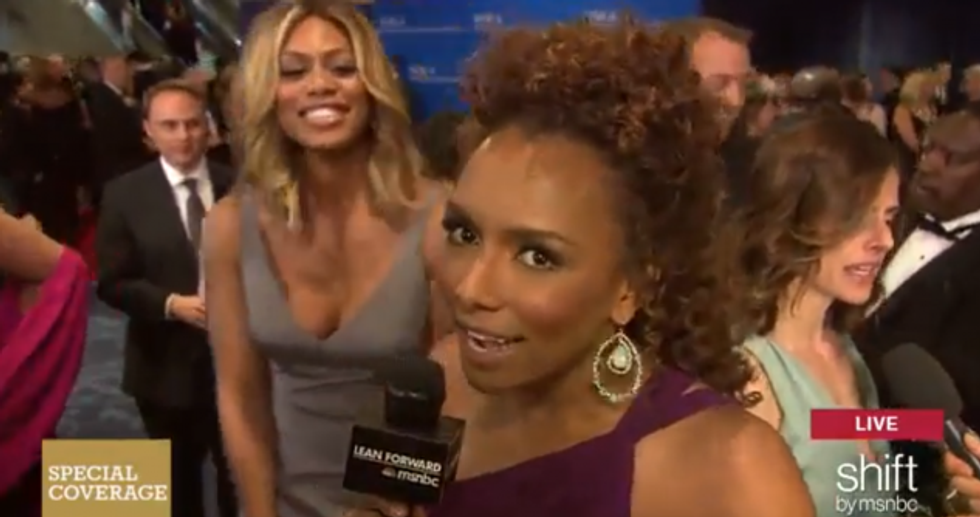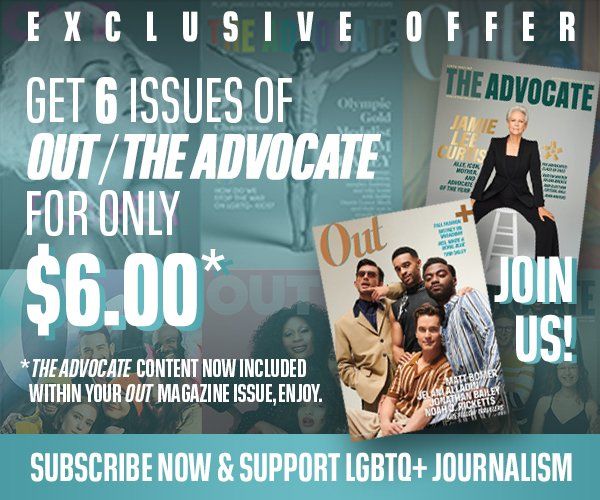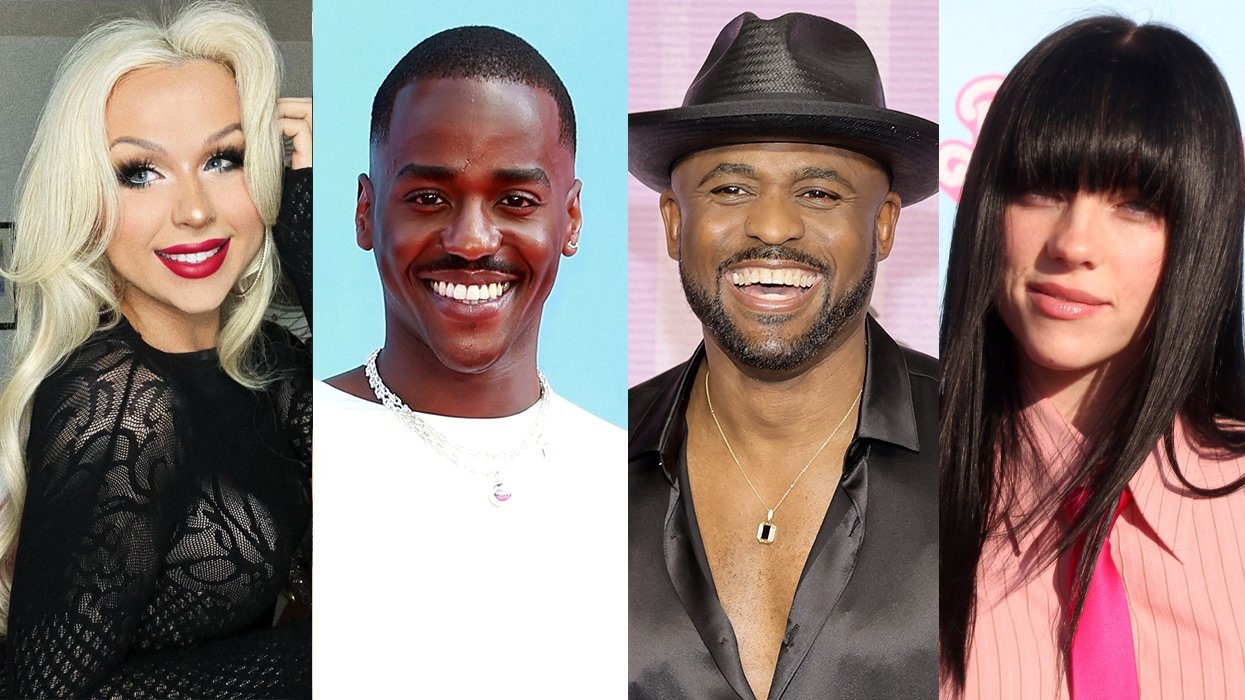One of the best things about the queer community as far as I’m concerned is the sheer variety of people it contains, including people with a multiplicity of different gender identities. Queer relationships where one or more partners are trans - be that trans men or women, genderqueer or genderfluid folk, a mixture or something else entirely - often face particular challenges, so it’s worthwhile considering how cis partners can best be supportive. Because everyone is different, though, and this stuff is often sensitive and emotionally loaded particularly when it comes to gender and sexuality, what this often comes down to is ‘talk about all the things as long as you’re both comfortable doing so.’ Here are a few things it might be worth discussing so you can be as supportive of a trans partner as possible.
If you’re curious, there’s some further reading on trans 101/201 stuff here and gender beyond the binary here from the excellent CN Lester.
1) How do we identify and how do those things mesh?
This is pretty basic but also pretty vital. If you’ve always identified as lesbian but you’re dating a genderqueer person or a trans guy, what does that do to your identity? Or to theirs? Is identifying as ‘queer’ rather than ‘lesbian’ appropriate for you both? If your partner is transitioning from one gender to another, or significantly altering their gender expression, how does this affect your relationship and how you define it? People’s gender identities are prone to changing over time, particularly so for nonconformist, fluid, and/or budding identities, so it’s worth keeping communication lines open and renegotiating if need be. Shifting boundaries and needs don’t necessarily mean you’re being fucked with – mostly they just mean understanding, readjustment and carrying on as before. Even if you wish who they are meshed better with your identity, you don’t get to put pressure on them to be more how you would like them to be, because that way lies 'being abusive and horrible'. Sad but true.
2) Are there any identity clashes? if so, how do we best deal with them?

This is where it gets tricky. How do you describe and live your relationship whilst allowing both of you to express your identities authentically? In practical terms, that often means ‘what happens if your identities clash, and can you deal?’ A lot of the time this depends quite specifically on your context and circumstances. For example, lots of people consider identifying as lesbian but dating trans men to be disrespectful of the male partner’s masculinity (discussion here) but if both you and your partner have strong links to lesbian identities and communities, it might be okay for you. If your partner is genderfluid but assigned female at birth, are they still cool with you identifying as ‘lesbian’? If she’s a trans woman, is she more comfortable if you both refer to your relationship as a lesbian relationship to avoid misgendering? Talk it over and see what you both think. Given that being a trans person is often a dangerous business in this shitty world of ours, probably best to let your partner lead on this one.
3) How out do they want to be with various people in your life?

Talking of letting your partner lead, this is another significant everyday issue. How out does your partner want to be about their gender identity in various life contexts? Your workplace, family, friends? If your partner identifies as genderqueer, genderfluid or another non-binary identity, this question matters because some people are unfamiliar with these concepts or have unpleasant preconceptions. If your partner is a trans man or woman, they may be profoundly uncomfortable with their trans status being shared at all, for very good reason. If you're discussing them in your absence, what is your partner’s personal preference for pronouns, terms of affection, definitive nouns like ‘partner’ ‘other half’ ‘boyfriend’ ‘girlfriend’ ‘squeeze’? Where does their personal balance between, say, having to explain what genderqueer is all the time vs. not being misgendered at your family reunion lie? You might be able to make things easier for them by laying groundwork ahead of time and heading off really unpleasant reactions at the pass (or warning them to avoid these people) but you need to check they’re okay with you sharing personal details before you do so.
4) Sexual stuff (speaking respectfully)

Regardless of gender identity, sexuality can often be fraught with social, emotional, or cultural baggage. Therefore, it’s really important to figure out what’s most comfortable. (If you’re both trans, rock on and come up with your own compromises!) What words does your partner like best to refer to their bits (if you want to have sex with your bits)? Do they like gendered language/dirty talk in bed and if so, what words are turn ons and turn offs? Is there anything they’d really like you to say, or anything that’s a hard limit to be avoided at all costs? How comfortable are they with you discussing aspects of your sex life with other people? How would they like you to field disrespectful questions about their body (if not a swift ‘fuck off it’s none of your business’? Figuring out the right words to use without triggering your partner or setting off their dysphoria is a pretty important baseline for a functional relationship – sex makes everybody vulnerable, and it’s a horrible place to be abused or denied.
5) Sexual stuff (pleasurable activities)

What kind of stuff will work for you guys in bed? Some people are happy to volunteer information about erections, arousal, penetrative preferences etc, but it’s always worth asking before you do something and talking in non-sexual situations to check everything’s okay. Ask your partner what they’d like you to touch and how. ("Do you like having your boobs squeezed? Are your nipples sensitive? Do you like being penetrated and if so where?") If they're on hormones does that affect their physical responses (including erections/orgasms)? What changes in their sexual feelings might they be experiencing and how can you respond to them? What about ejaculation, lubrication, anal play? What toys might they be into? Everybody’s sexual preferences and responses vary anyway, but if you introduce gender dysphoria or homone-based changes this is particularly marked, and it’s worthwhile checking in regularly to find out whether anything’s changed. Don’t forget to also let them know what YOU like and how they can best turn you on/get you off – there’s no reason why this should be one-sided!
6) Non-genital sex stuff

Lots of people with various kinds of dysphoria (and lots of people without it) enjoy various kinds of non-genital sexual stuff like massage, sensation play, BDSM, restraints, dirty talk, role play etc. If you and your partner are into this or thinking of experimenting, there’s a whole bunch of negotiation around topping/bottoming preferences, tools, boundaries, vocabularies to work out. Some of this might come with some cultural gender loading, some of it might not, but it’s always important to discuss what you’re into, what’s working, what you’d like to try, and what you’re just not up for. It's worth pointing out that some trans people find it really hard to be naked/totally naked during sex, so certainly don't assume that a lack of nudity means a lack of closeness!
7) How can you best offer support in different areas of their life?

How comfortable are their relationships with work, community, family, friendship groups? Are there any areas of conflict? Lots of trans people sadly have difficult relationships with at least some friends and family members, and/or aren’t out at work or in certain contexts. It’s worth discussing what these issues are and how you can best support them. Fielding their mother’s difficult questions? Calling friends out for repeated misgendering so your partner doesn’t have to? Protecting their confidentiality at work? How can you best support them if they're dealing with non-acceptance in various contexts? Like any relationship, this is all about mutual care and figuring out what you both need.
8) How can you best be a good trans political ally?

If trans politics or activism is a thing relevant to your relationship, maybe talk through with your partner how you can best use cis privilege and/or your own experience of gender to fight for trans rights and recognition. If your partner is stealth or not interested in politics, feel free to follow their lead – although sometimes spending lots of time in queer communities is a pretty politicising business in itself. Maybe educate yourself a bit about the ongoing legal and political issues around trans rights, and/or the work of Julia Serano/Patrick Califia/Janet Mock/ Roz Kaveney/Juliet Jacques and other trans writers, or the vast array of writing and creativity by trans artists on the internet? You don’t even have to bring this up with your partner – don’t do it for cookies – but it might give you a deeper understanding of the complexities of trans experience and how to not be rude/unpleasant/identity-policing/any of the other bad stuff it's easy to do by accident.
9) How can you best help with any gender dysphoria?

Sadly, you probably can’t. But what you can do is ask your partner how they’d like you to respond if they’ve been triggered or they’re having a bad body day – do they need space? Cuddles? Opportunity to rant? A sympathetic ear? If you’re both trans and prone to triggering each other, maybe consider a time out system to give you both a chance to recover. If you’re cis, simply do your best to be understanding and responsive and respectful.
10) Create a space where ‘being trans’ doesn’t matter anymore

Probably the most important thing that you can do is to create space between you where 'being trans' isn't even a thing anymore, where social constructs and assumptions just don’t exist, where you can just be yourselves together. As one trans friend puts it: ‘if I've spent all day doing activist things and/or been misgendered and/or had a helping of particularly egregious transphobia and cissexism - I need to come back to a place where all the societal categories drop away, and it's just me and my partner being ourselves together. The totality of our selves together, but in a way that leaves the way the world sees us at the door.’
Have you liked us on Facebook?
































































































































